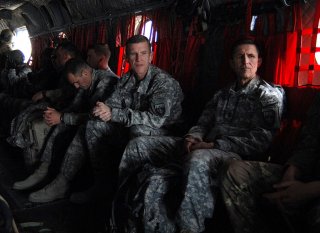Goodbye Susan Rice, Hello National Security Options
Flynn should reduce the country's national-security priorities.
The Syrian conflict is a humanitarian horror, but the country was never of much geopolitical interest to America. Belief that Washington could fix that tragic land was always a fantasy. Iraq’s implosion is a direct result of U.S. policy. Ultimately, only the Iraqis can sort out the mess. The main stress for the next NSA should be how Washington, DC keeps jumping into imbroglios, which could and should be avoided.
That leaves Asia. Washington, DC should have left Afghanistan long ago. Washington’s principal objective should be to prevent the creation of another terrorist sanctuary, not to establish a Western-style democracy in Kabul. Pakistan remains a dangerous mess, but that is another reason to exit Afghanistan, which would reduce reliance on Islamabad. The Central Asian autocracies require pragmatic handling, but matter mostly to support intervention in Afghanistan, which should have run its course.
America’s relationship with India has improved in recent years. New Delhi faces plenty of challenges, which the United States can’t do much about. Southeast Asia hosts very different nations with very different struggles. Washington, DC should wish these nations well but note that America will be fine however they turn out. Concerns over Burma, Cambodia and Thailand are mostly humanitarian and focused on efforts to unravel dictatorships. There is really no cause for the NSA to stress over these things.
Northeast Asia may be of greatest concern but, again, much of the stress is of Washington’s own making. South Korea long ago surpassed North Korea on most measures of national power and is capable of defending itself without the presence of 28,500 American military personnel. If America kept its military at home, then it wouldn’t be planning for another Korean war, which is something that presumably stressed Rice.
Additionally, Japan should accelerate its move towards being a “normal” country with normal security policies. Washington, DC should press for the peaceful resolution of regional territorial disputes, but the only nations that should conceivably contemplate war over the Senkaku/Diaoyu Islands are China and Japan. While that is a worrisome prospect, the next NSA could reduce stress levels by keeping America out of any such conflict.
Australia (along with New Zealand) is friendly and secure. In contrast, the Philippines is a semi-failed state ruled by someone who makes Donald Trump appear rational. That’s another good reason for Washington, DC to back away and focus its policy on ensuring navigational freedom and the independence of friendly states from a potential hegemon, like China.
Of course, even if the United States adopted a more sensible and distant balance strategy in Asia, the NSA would still feel some stress. Asia has the world’s most populous states with the fastest-growing economies. Asia is home of the next potential superpowers: China and India. Additionally, the regional balance of power is shifting.
Even so, the United States has a larger and more productive economy. It is allied with most of the world’s industrialized states, friendly with one of the two biggest powers, linked to most of China’s neighbors, which want to limit its aggressiveness, and insulated by the Pacific Ocean. Preserving U.S. dominance along China’s border might be of interest to Washington, DC but is neither vital nor, over the long term, achievable at a reasonable cost. Asian officials should feel more stressed about that than the NSA.
If the United States had a foreign policy that more closely represented the nation’s actual interests, the incoming national security adviser would be stressed by only a few nations, not by all of them. America, in all actuality, is remarkably secure.
The Trump administration will face genuine and serious challenges, but it could reduce the stress levels of the NSA and other officials by abandoning past attempts by the United States to micromanage the world. Promiscuous intervention and global social engineering are not only conflict-creating, but also stress-inducing. Mike Flynn should learn from Susan Rice’s tired example.
Doug Bandow is a Senior Fellow at the Cato Institute and a former Special Assistant to President Ronald Reagan.
Image: Gen. Stanley McChrystal and Maj. Gen. Michael Flynn flying over Afghanistan. Wikimedia Commons/Public domain

